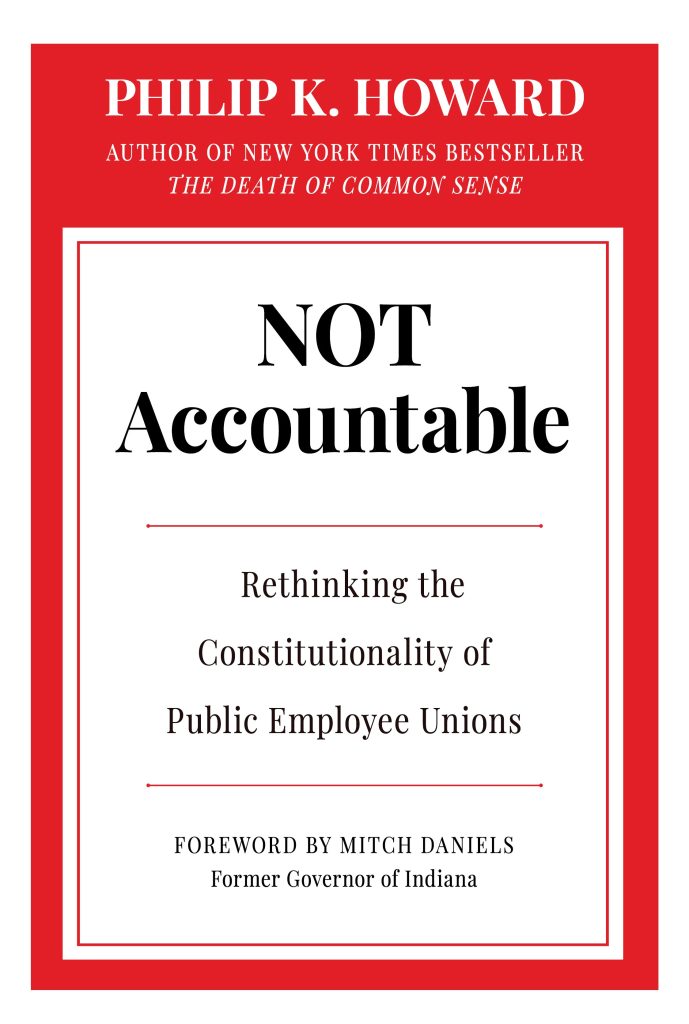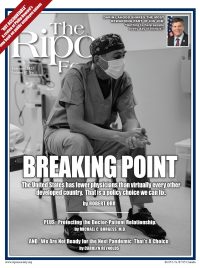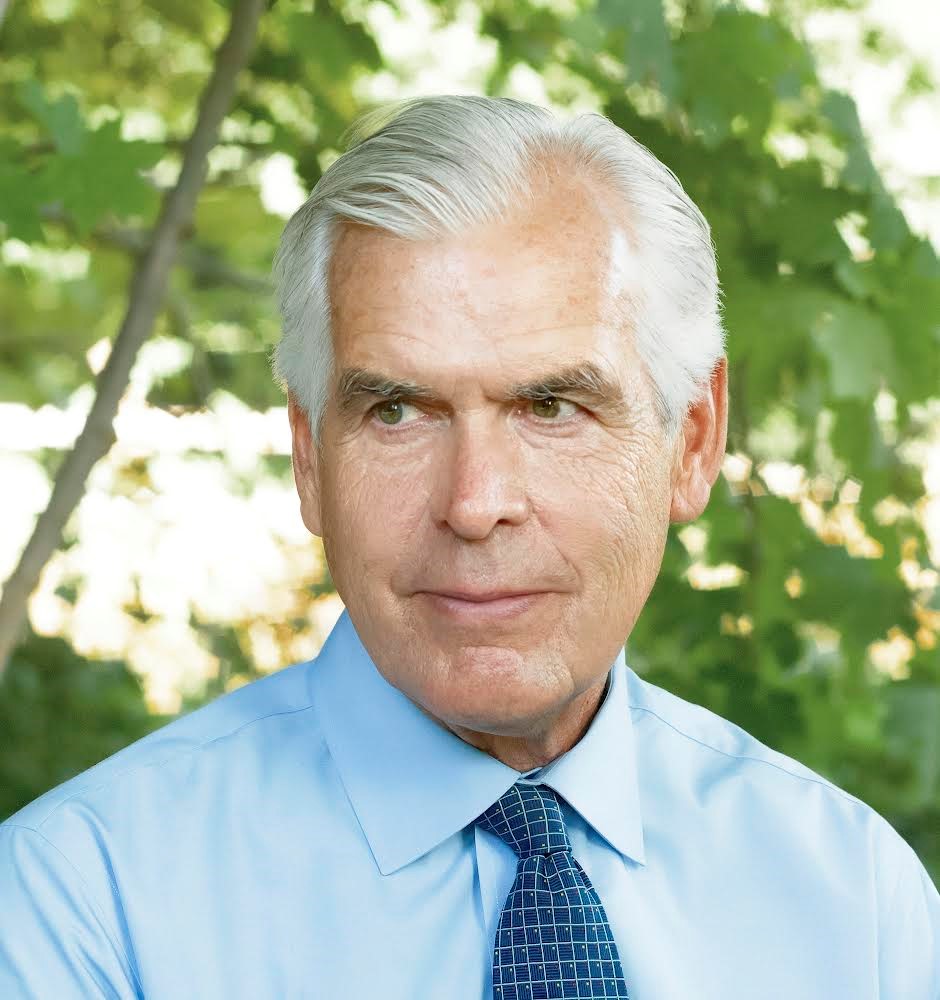Shortly after Republicans won control of the U.S. House of Representatives in 1994, a book was published that soon became a must-read on every Republican’s reading list.
It was called The Death of Commonsense: How Law is Suffocating America. Written by attorney Philip K. Howard, the book offered a detailed look at how overregulation and bureaucratic overreach were stifling innovation and free enterprise in America.
Nearly 30 years later, with the GOP once again back in control of the House, Howard is out with another book that should not only once again be at the top of every Republican reading list, but should be on the reading list of any American who wants a more effective government and supports eliminating the obstacles that stand in the way of achieving that goal.
Howard is out with another book that should not only once again be at the top of every Republican reading list, but should be on the reading list of any American who wants a more effective government.
The book is called Not Accountable: Rethinking the Constitutionality of Public Employee Unions. As its name implies, Howard believes one of the reasons that government has become so dysfunctional is because public employee unions – as opposed to elected officials – have too much control. He offers a searing indictment detailing, in his words, “how public employee unions have disabled democratic governance in five principal ways.”

Howard writes that “public employee unions have:
- Severed the links of accountability;
- Rendered government substantially unmanageable with detailed rules and veto powers;
- Made government unaffordable with opaque benefit packages and compensation manipulations;
- Changed public policies to the harm of the public good; and,
- Entrenched these abuses, and made reform practically impossible, through organized political power.”
Like he did in The Death of Common Sense three decades earlier, Howard fills Not Accountable with examples to support his argument — examples in this case which highlight how the principles of democratic governance have taken a backseat to the drive by unions to gain more power and control.
“In 1994,” he writes, citing one example, “the California Correctional Peace Officers Association (CCPOA) organized a coalition to pass a referendum for a ‘three-strikes’ law mandating twenty-five-years-to-life sentence for people on their third crime, even if it’s nonviolent. By increasing the number of inmates, the law thereby expanded the need for more correctional officers.” Howard goes on to point out that: “the union-sponsored law had the desired effect – the California state prison population rose from roughly 50,000 in 1985 to 170,000 in 2006. So did the number of CCPOA members, from 5,000 to 31,000. So did the compensation of prison guards – to a pay scale roughly twice that in other states.”
Howard believes one of the reasons that government has become so dysfunctional is because public employee unions – as opposed to elected officials – have too much control.
Howard also notes that public employee unions have played a leading role opposing taxpayer initiatives to limit spending and taxes. He cites research by political scientist Daniel DiSalvo, who reported that in 2009: “Both Washington State and Maine had spending caps on the ballot. In both cases, the public sector unions provided between one-third and one-half of the total funding opposing the measures.” Howard further notes that: “In 2005 public employee unions led a $28 million effort to defeat a spending cap bill in California. In 1991, the New Jersey teachers unions went to war against Democrats when Governor Jim Florio used part of the budget for tax relief instead of schools. Public unions can argue that more public spending is good public policy. But, in a democracy, that policy choice should be made by elected officials considering all interests, not just to kowtow to public employees.”
According to Howard, public employee unions representing teachers have also led the fight against charter schools. “State by state,” he writes, “teacher unions have succeeded in capping the number of charter schools. In Massachusetts in 2016, teacher unions successfully blocked an increase in charter schools after several studies found that ‘these schools are producing spectacular gains’ and that ‘the effects are particularly large for disadvantaged students. Another union technique is to hurt existing charters in any way possible – such as fighting every decision to let charter schools use extra space in existing school buildings and reducing public funding per student below that of public schools.”
Howard makes clear that he is not opposed to unions. “What corrupts democracy is not the idea of unions,” he writes. “It’s not hard to imagine unions that actually promote better schools and greater efficiency.” But he ultimately concludes: “Constitutional government cannot withstand the organized political power of public employees who, in breach of their fiduciary duties, demand policies that harm the public … Political activity by public unions should be ruled unconstitutional. The Supreme Court need not create a broad loyalty doctrine. It only needs to hold that organized political activity by public employees involves an unavoidable conflict of interest with the core values of the Constitution: that officials should aspire to “promote general welfare” with “necessary and proper” laws and “take Care that the Laws be faithfully executed.”
Make no mistake – Howard’s recommendation is a bold one without precedent. But with trust in government at or near an all-time low and with a majority of the American public once again identifying government dysfunction as the top problem facing the country, one could easily arue that the time for half-measures is over. Former Indiana Governor and Purdue University President Mitch Daniels makes essentially this same point in the effusive introduction he penned for this book.
“If Mr. Howard is correct,” Daniels writes,” America does not need an aroused majority of millions to redress the corruption of our free institutions, only a judicial system willing to examine fairly the arguments of this learned fellow attorney and purely motivated public citizen. Let’s all hope Philip Howard gets his day, which would be a great day for all Americans in court.”
Until that day arrives, let’s hope all Americans hear more about Philip Howard and the latest book he has written about making government work.
Caroline Banaszak serves as Deputy Editor of The Ripon Forum.





